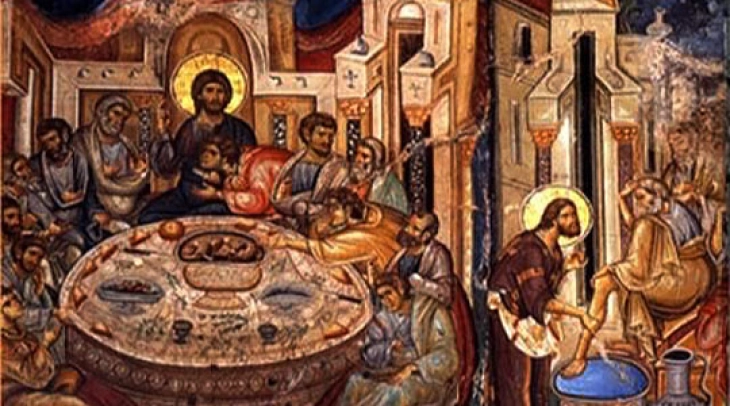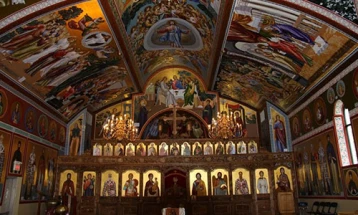Religious calendars
- Macedonian Orthodox Church Calendar; St. Leo, Bishop of Catania
- Post By Silvana Kocovska
- 10:09, 5 March, 2023

5 March 2023 (MIA)
Macedonian Orthodox Church Calendar
St. Leo, Bishop of Catania
Beneath Mount Etna the volcano, in the town of Catania, St Leo was a good shepherd and compassionate teacher of the people. He had great care for the sick and poor and both his zeal for the Faith and his compassion for the needy were great. There appeared one day in that town a magician called Heliodorus, who deluded the people with many illusions and greatly seduced the young. He once entered a church during divine service and began his tricks. St Leo came up to him, bound him with one end of his pallium and led him out to the market place. There he ordered that a great fire be kindled. When it was burning fiercely he stood among the flames and pulled Heliodorus to him. Heliodorus was completely burned up, but Leo remained alive and unharmed. This put all that Heliodorus had taken in, and who had regarded him as in some way divine, to shame. The compassionate and zealous Leo became known throughout the whole kingdom as a wonder-worker, helping people by his miracles. When he had finished his course, some time in the 8th century, his soul went to the Lord and healing myrrh flowed from his relics.
Catholic Calendar
St. John Joseph of the Cross
St. John Joseph of the Cross was born about the middle of the seventeenth century in the beautiful island of Ischia, near Naples. From his childhood he was the model of virtue, and in his sixteenth year he entered the Franciscan Order of the Strictest Observance, or Reform of St. Peter of Alcantara. Such was the edification he gave in his Order, that within three years after his profession he was sent to found a monastery in Piedmont. He became a priest out of obedience, and obtained, as it seems, an inspired knowledge of moral theology. With his superiors’ permission he built another convent and drew up rules for that community, which were confirmed by the Holy See. He afterward became Master of Novices. Sometimes later he was made provincial of the province of Naples, erected in the beginning of the eighteenth century by Clement XI. He laboured hard to establish in Italy that branch of his Order which the sovereign Pontiff had separated from the one in Spain. In his work he suffered much, and became the victim of numerous calumnies. However, the saint succeeded in his labours, endeavouring to instil in the hearts of his subjects, the double spirit of contemplation and penance bequeathed to his Reform by St. Peter of Alcantara. St. John Joseph exemplified the most sublime virtues, especially humility and religious discipline. He also possessed numerous gifts in the supernatural order, such as those of prophecy and miracles. Finally, consumed by labours for the glory of God, he was called to his reward. Stricken with apoplexy, he died an octogenarian in his convent at Naples on March 5, 1734.







